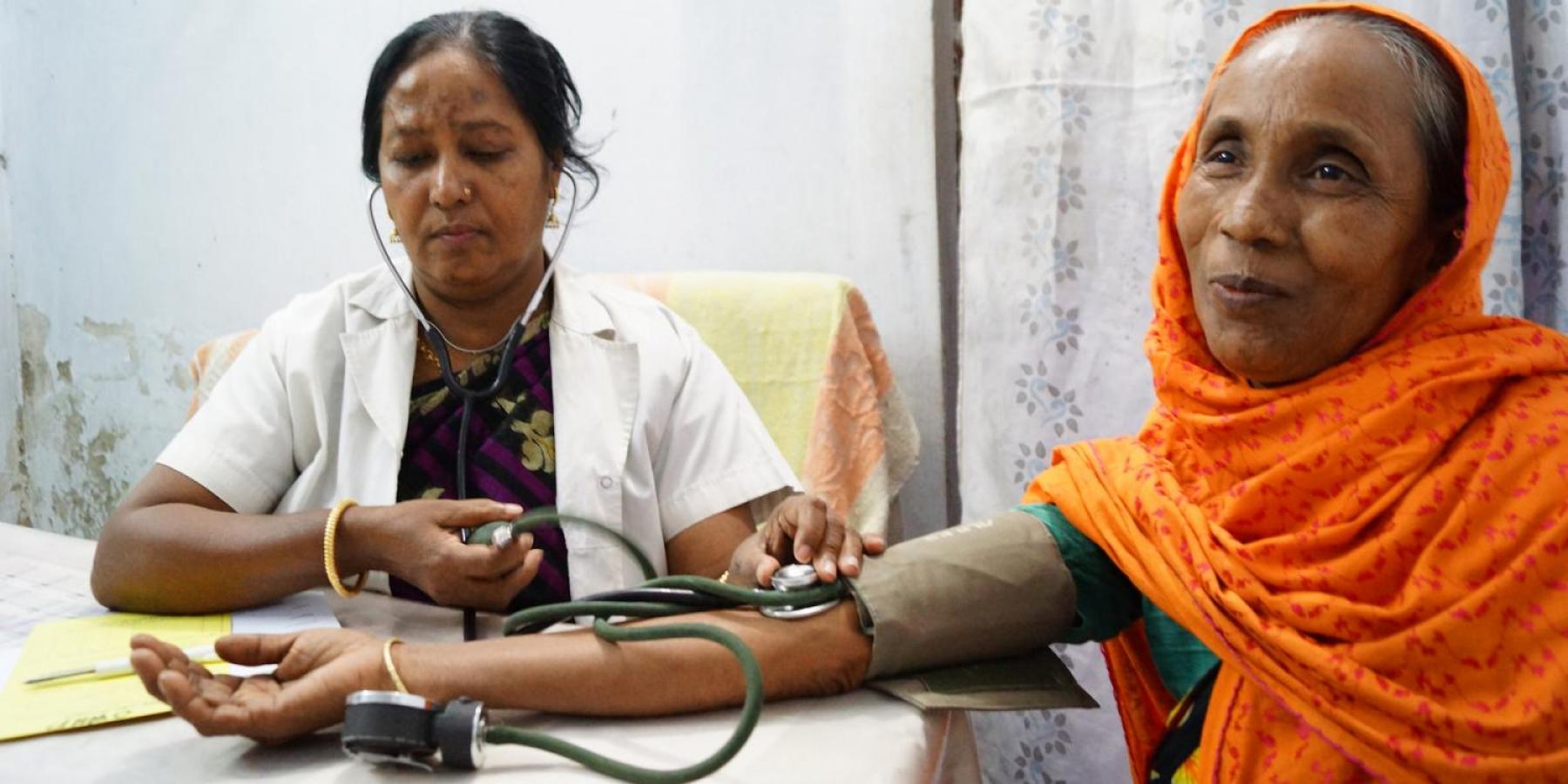NCDs kill more people than bullets or bombs with older people susceptible hidden victims
20th June 2018

20th June 2018
We see this in Syria where NCDs are responsible for 46% of deaths, surpassing the number from war-related trauma injuries. NCDs are the number one cause of death globally, and it’s in low and middle-income countries where this changing disease burden is happening fastest. This shift is due in part to rapid population aging. Low and middle-income countries are home to the highest numbers of older people, where 7 in 10 people age 60 and over currently live. By 2050, this figure will rise to 8 in 10. Among older people in these countries, NCDs account for 90% of their disease burden.
So, older people are more susceptible to NCDs than any other age group, and they are increasingly living in low and middle-income countries. It’s also in these places, such as Syria, Iraq, and Ukraine, where some of the world’s worst humanitarian crises are occurring.
More older people are affected by humanitarian emergencies than you’d think. Up to 14 million older people with disabilities are currently affected by humanitarian crises, according to the HelpAge International study Missing Millions,and an estimated 26 million older people are affected by natural disasters each year, according to Age International. It’s estimated that half of the people displaced by the conflict in Ukraine are also older.
For those that do survive, access to care and medication for an NCD is often critical for their health. Among displaced older Syrian refugees in Jordan and Lebanon, NCDs are the most common reason for seeking health treatment. According to Hidden Victims, a 2014 report by HelpAge International and Humanity & Inclusion, 54% of surveyed older refugees were affected by NCDs. In a rapid needs assessment HelpAge carried out in Indonesia among people displaced by Mount Agung’s eruption in 2017, 63% of older people surveyed had a chronic health condition.
But accessing any kind of humanitarian assistance let alone healthcare is especially challenging for an emergency’s oldest survivors. In a door-to-door survey of 7,000 survivors of Typhoon Haiyan in the Philippines, HelpAge found that 27% of older people received no shelter assistance, and 22% said the food aid they received was not palatable for the low-sugar, low-salt diets required for someone with diabetes or high blood pressure.
Medical assistance can also be too far away or difficult to reach. In Cox’s Bazar, Bangladesh where many Rohingya have fled to escape violence in neighboring Myanmar, refugee camps are hilly and unpaved. The area is also known for its heavy rainy season that can lead to severe flooding. These conditions would be challenging for anyone to navigate, but they are often impossible for an older person who has difficulty walking.
HelpAge works across 60 countries to ensure that communities are prepared to address NCDs in a humanitarian crisis. We work with local NGOs and civic associations to develop emergency preparedness plans that account for the health needs of the oldest in a community, and we train healthcare staff so they’re equipped to care for people with NCDs. In Lebanon, where up to 1.5 million Syrian refugees are living, HelpAge works with local partners to provide healthcare for older people with hypertension and diabetes, including medical consultations, laboratory tests, and medication. So far, we’ve helped close to 4,000 people in Lebanon manage their chronic diseases and trained over 600 care providers on early detection of NCDs.
Kate Bunting (@katebuntingdc), CEO of HelpAge USA, is a life-long advocate and campaigner who has invested her 25-year career in international development policy and advocacy to build constituencies dedicated to fighting global poverty. Kate oversees initiatives that strengthen humanitarian inclusion and improve health across the life course. In 2016, Kate was recognized for work as a Hilton Prize laureate for HelpAge USA. Previously, Kate served in a leadership role at the U.S. Agency for International Development directing public affairs and stakeholder outreach on key initiatives for food security, global health and humanitarian emergencies.
HelpAge USA is the U.S. affiliate of HelpAge International, a global non-profit dedicated to promoting the well-being and inclusion of older people. In a time of unprecedented demographic change, HelpAge advocates for health systems and policies that meet the needs of an aging world. Our programs provide older people and their families with resources and services to manage their health including screenings for non-communicable disease and eye exams to prevent blindness. To learn more about HelpAge programs as well as the health challenges of an aging world, visit www.helpageusa.org.